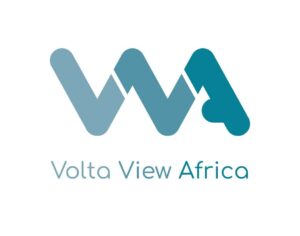VoltaViewAfrica – Sun-e-Boat (the Gambia)
Who, What & Where
- VoltaViewAfrica
- Sun-e-Boat
- The Gambia
The Company
Even today there is no access to fresh water and electricity for the people of the island of Jinack, The Gambia. Their main source of income is fishing. Today they spend up to 600 EUR per month for gasoline to run their outboard engines. These engines are old, need a lot of maintenance and pollute the atmosphere and water.
This problem is addressed by introducing electric outboard engines and Li-ion batteries operating their fishing boats. E-engines are provided by Torqeedo and Li-ion batteries are developed by Fraunhofer Fraunhofer Heinrich-Hertz-Institut (HHI) as a novel “battery to go” concept. Li-ion batteries are accommodated in an IP67 sealed case and can be plugged easily into the e-outboard engine. Charging of the Li-ion batteries is done with the container-based VoltaViewAfrica mini-grid system. This provides electricity through photovoltaics (30-50 kWh per day) but also produces clean drinking water (up to 2,000 l/day).
The investment to equip 10 fisher boats with e-outboards, Li-ion batteries (5 kWh capacity) and a VoltaViewAfrica clean energy clean water mini-grid is around 60,000 EUR. With 10 clients, a leasing concept of 150 EUR per month will refinance the investment within five years. About 50 families will benefit since typically 4-5 persons are operating one fisher boat.
The Challenge
Finding investors after a successful demonstration of the “Sun-e-Boat” project at the Jinack Island will be addressed through a wide promotion campaign in The Gambia and West Africa and presentation of the project in exhibitions and other promotional mediums
Convincing traditional fishermen to adopt the new technology will be done before the project at a show demonstration of the technology in The Gambia in Autumn 2022. Here, the first e-outboard engine and “Battery to Go Case” will be shown to fishermen of the Jinack Island, which they can test by themselves.
Technical support of the new technology will be done in collaboration with the University of The Gambia and the consortium partner SUV and the Fraunhofer HHI will provide an educational training programme
Renewable Solution
E-fishing boats have been introduced as an e-mobility solution.
| Max capacity of vehicle(s) | 4-5 fishermen per boat |
| Decision on target market |
|
| Local community engagement |
The European Union (EU) has organised a working group in the Gambia to discuss and explore new innovations in the transport sector, especially e-mobility on the ground but also on the water. The community engagement happens through this working group. |
| Energy requirements for individual vehicles |
|
| Max operating distance per single charge | The typical operating distance per single charge is 40-50 km |
| Battery type |
|
| Inhouse DRE capacity to power e-mobility solution |
|
| Energy storage & backup power | Li-ion batteries storage system (30-50 kWh) |
Project Financing and Costs
40,000 EUR (grant), 60,000 EUR (equity)
- VoltaViewAfrica (applicant and general project management)
- United Experts Ltd. (project manager in The Gambia)
- Sub-Saharan United Vehicles Ltd. (SUV) (provider of Charging as a Service (ChaaS), container owner)
- Fraunhofer HHI, Goslar (technical support)
- Panneh Ngoneh, intracen.org (media support)
- Bamba Saho (upcoming honorary consul in Berlin for The Gambia)
- United Energies AG (financier)
- Kohlhoff GmbH (provider of Torqeedo outboard e-engines)
- Encory GmbH (provider of Li-ion cells)
- Deutsche Energie-Agentur (DENA RES) – Renewable Energy Solutions Programme (grant provider)
Project Outcome
- The usage of e-outboard engines will reduce costs for the operation of fisher boats by more than 50% compared to today’s gasoline operation making the fishing business more competitive and enhancing the net income of the fishermen’s families significantly
- No additional costs for everyday use and maintenance of the boats
- New e-outboard engine with a three-year warranty
- Access to electricity and clean drinking water after the installation of the VoltaViewAfrica clean energy clean water mini-grid serving about 50 families on the Jinack Island
- Besides operating the e-engine of the fishing boat, the “Battery to Go Cases” can also be taken home and be used for electricity-producing light at night and charging mobile phones. For example, by producing electricity to operate sewing machines, women can establish micro businesses and, in doing so, support their families with additional income.
- Today’s average consumption of gasoline per fisher boat is 10-20 l/day. Replacing 10 boats with e-outboard engines will save up to 50,000 l of gasoline a year assuming 250 working days.
Key Recommendations
- The first demonstration of the e-outboard engine with a traditional fisher boat will already change the behaviour of the fishermen because the e-engine does not make any noise, is easy to operate, does not pollute water and atmosphere and does not require additional operating costs
- The power comes from the sun. The fishermen and their families have access to electricity and clean drinking water through the mini-grid system, thereby improving their living conditions significantly.

